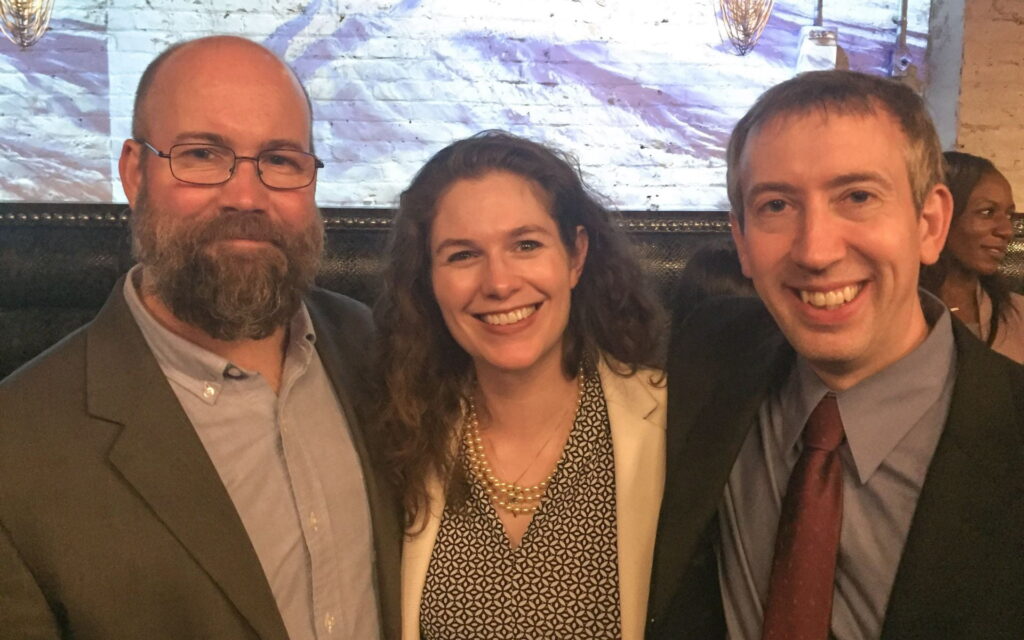Crafting furniture in his garage, Clint T. Allen, MD, carves away at oak and walnut, one day creating cabinets or, on another, maybe a countertop for his new bar. An otolaryngologist who trained at Washington University School of Medicine, Allen is like many of his fellow surgeons: he enjoys using sharp tools.
Yet when it comes to treating recurrent respiratory papillomatosis (RRP), his passion is to remove the need for surgical tools. Today, the only treatment for this disease, which frequently presents with papillomas or small wart-like growths in the airway, is removal by surgery. And when the papillomas pop up again, which they do for many patients, surgery is once again the only solution to maintain a patient’s voice or clear the airway for breathing.
At the National Institutes of Health, Allen heads the Translational Immunology Program which studies how the immune system responds to head and neck cancers or HPV-associated respiratory papillomas. The group also develops new immunotherapies for cancer and papilloma, eventually moving some of them into first-in-human clinical trials. Supported by government funding, his lab is one of the few labs worldwide working to develop non-surgical therapeutics treatment for RRP.
Clint Allen, MD, in green dinosaur mode, and his lab members at Halloween.With great enthusiasm, Allen says, “it’s fun!”
Few people study RRP because it’s relatively rare, hard to get funding, and many otolaryngologists who provide care for RRP patients don’t have laboratories capable of pre-clinical and clinical development of new immunotherapies. Although the tumors can be life threatening if they block the airway or cause recurrent post-obstructive pneumonias, they are not cancerous, and grants and drug company funding is more likely to go to treating cancer.
“What my research program has done is taken all the cool new things we’re doing for head and neck cancer and applied them to RRP,” says Allen, whose team is also investigating new treatments designed to activate the immune system specifically against both HPV-positive and HPV-negative head and neck cancer.
Earlier this year, his group published its findings from a phase II study that determined that activating RRP patients’ immune systems with immune checkpoint blockade is safe and can induce significant regression of papillomas in some, but not all patients.
Next up, his group plans to complete more ground-breaking work in the lab and launch a clinical trial for a novel therapeutic HPV 6/11 vaccine for the treatment of RRP in 2020.
